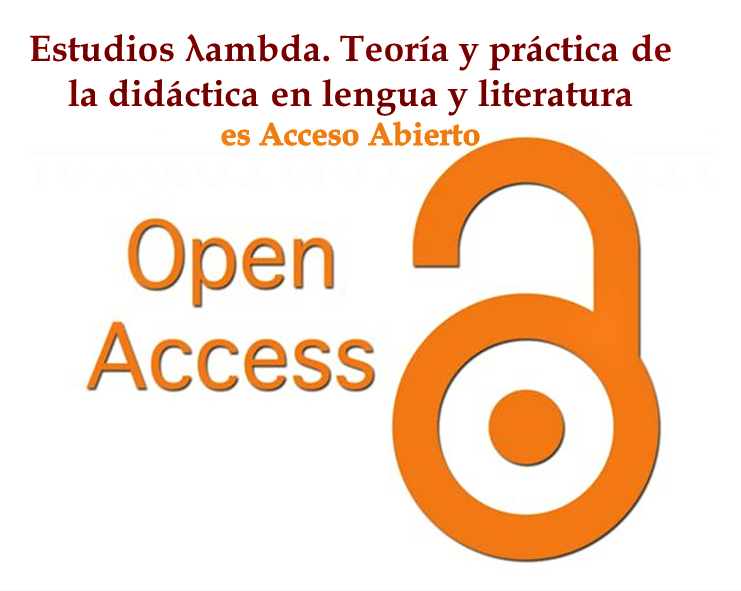Written Argumentation Skills of University Students
Habilidades de argumentación escrita en la universidad
DOI:
https://doi.org/10.36799/el.v5i1.102Keywords:
writing, skills, speech, reasoning, university studentsAbstract
In this article we present the results of a research work done in a doctoral thesis. In this case we concentrate in the results obtained so far with respect to the analysis of a part of the total corpus of the doctoral thesis; specifically, it is the descriptive analysis of 28 argumentative texts written by a group of first-year students of Linguistics Program at the University of Sonora, who participated in two work sessions with various activities -such as reading, oral discussion and exposition of information-, which resulted in two versions of a text for each student. The objective of the research is to describe how the students elaborate the arguments to defend their points of view over a general controversial topic, as well as to analyze the changes that appeared between each version of the texts elaborated in the two phases of the composition process. Methodologically, the texts were first analyzed from a pragmatic-dialectical framework of argumentation, which consists in transferring the texts to a graphic version, so that the general structure of the texts can be then analyzed by making visible the different argumentative elements that the students used to construct the defense of their points of view. The results showed that in the texts of the first working session, students used a moderate amount of total argumentative elements, but the diversity of types was limited. On the other hand, in the texts resulting in the second working session there was a general increase, both in the amount of total elements used and in the diversity of these, which was reflected mainly in the inclusion of components that imply a certain degree of awareness about the existence of a critical audience that may question their opinion.
Downloads
References
Álvarez Angulo, T. y Ramírez Bravo, R. “Teorías o modelos de producción de textos en la enseñanza y aprendizaje de la escritura”. Didáctica. Lengua y literatura. 18 (2006): 29-60. Recuperado de https://revistas.ucm.es/index.php/DIDA/article/view/DIDA0606110029A/19144
Andrade Calderón, M. C. “La escritura y los universitarios”. Universitas Humanística, 68 (2009): 297-340. Recuperado de https://revistas.javeriana.edu.co/index.php/univhumanistica/article/view/2277/1587
Bañalez Faz, Gerardo; Norma Alicia, Vega López; Narciso, Araujo Alvineda; Antonio Reyna Valladares y Brianda Saraí, Rodríguez Zamarripa. “La enseñanza de la argumentación escrita en la universidad”. Revista Mexicana de Investigación Educativa, 20 (2015): 879-910. Recuperado http://www.comie.org.mx/documentos/rmie/v20/n066/pdf/66008.pdf
Björk, Lennart y Ingegerd Blomstrand. La escritura en la enseñanza secundaria. Barcelona: Graó, 1994.
Calsamiglia, Helena y Amparo Tusón. Las cosas del decir: manual de análisis del discurso. Barcelona: Ariel, 2004.
Carlino, Paula. “Alfabetización académica: un cambio necesario, algunas alternativas posibles”. Educere Investigación. 6. 20 (2003): 409-420.
Carlino, Paula. Escribir, leer y aprender en la universidad: Una introducción a la alfabetización académica. Buenos Aires: Fondo de Cultura Económica, 2005.
Cassany, Daniel. Describir el escribir: cómo se aprende a escribir. Barcelona: Paidós, 1989.
Cassany, Daniel. Construir la escritura. Barcelona: Paidós, 1999.
Castro Azuara, María Cristina y Martín Sánchez Camargo. "La expresión de opinión en textos académicos escritos por estudiantes universitarios". Revista Mexicana de Investigación Educativa. 18.57 (2013): 483-506. Recuperado de http://www.comie.org.mx/revista/v2018/rmie/index.php/nrmie/article/view/255/255
Chase, Beth Jillian. An Analysis of Argumentative Writing Skills of Academically Underprepared College Students. Tesis de Doctorado en Filosofía, Universidad de Columbia, 2011. Recuperado de https://pdfs.semanticscholar.org/c078/f26a75a01c0eb27606fa0be54e4ecd347578.pdf
Freedman, S. W. “Writing Instruction”. En B. Spolsky (Ed.), Concise Encyclopedia of Educational Linguistics. Oxford: Elsevier. (1999): 481-482.
Felton, Mark y Susanne Herko, “From dialogue to two-sided argument: Scaffolding adolescents' persuasive writing”. Journal of Adolescent and Adult Literacy. 47.8 (2004): 672-683. Recuperado de https://www.researchgate.net/publication/266477242_From_dialogue_to_two-sided_argument_Scaffolding_adolescents'_persuasive_writing
Ferreti, Ralph; Lewis, William y Scott Andrews-Weckerly. "Do Goals Affect the Structure of Students' Argumentative Writing Strategies?” Journal of Educational Psychology, 101.3 (2009): 577-589. Recuperado de https://pdfs.semanticscholar.org/5bff/969c562794cf476e87766eb6d61e7d190524.pdf DOI: https://doi.org/10.1037/a0014702
Morales, Oscar Alberto y Norelkys Espinoza. "El desarrollo de la escritura de estudiantes universitarios". Lectura y Vida. (2005): 26-37.
Panahandeh, Esmaeil y Shahram Esfandiari, S. "The Effect of Planning and Monitoring as Metacognitive Strategies on Iranian EFL Learners' Argumentative Writing Accuracy". Procedia - Social and Behavioral Sciences, 98 (2014): 1409-1416. https://doi.org/10.1016/j.sbspro.2014.03.559 DOI: https://doi.org/10.1016/j.sbspro.2014.03.559
Rodríguez Bello, Luisa Isabel. “El modelo argumentativo de Toulmin en la escritura de artículos de investigación educativa”. Revista digital universitaria, 5.1 (2004).
Van Eemeren, Frans, Peter Houtlosser y A.F Snoeck Henkemans. Argumentative Indicators in Discourse: A Pragma-Dialectical Study. The Netherlands: Springer, 2007. DOI: https://doi.org/10.1007/978-1-4020-6244-5
Van Eemeren, Frans; Rob, Grootendorst; Francisca Henkemans y Roberto Marafioti. Argumentación: análisis, evaluación, presentación. Buenos Aires: Biblos, 2006.
Van Eemeren, Frans; Rob, Grootendorst. A Systematic Theory of Argumentation: The pagma-dialectical approach. Cambrigde: Cambridge University Pres, 2004. DOI: https://doi.org/10.1017/CBO9780511616389
Downloads
Published
How to Cite
Issue
Section
License
Copyright (c) 2020 Linaloe León Baro

This work is licensed under a Creative Commons Attribution-NonCommercial-NoDerivatives 4.0 International License.
El autor o autores conservan en todo momento sus derechos morales y patrimoniales sobre la obra; la obra no se puede alterar, transformar o ampliar; siempre debe reconocerse la autoría del documento referido. Ninguna de las modalidades de los documentos publicados en Estudios λambda. Teoría y práctica de la didáctica en lengua y literatura tienen fines comerciales de naturaleza alguna.



